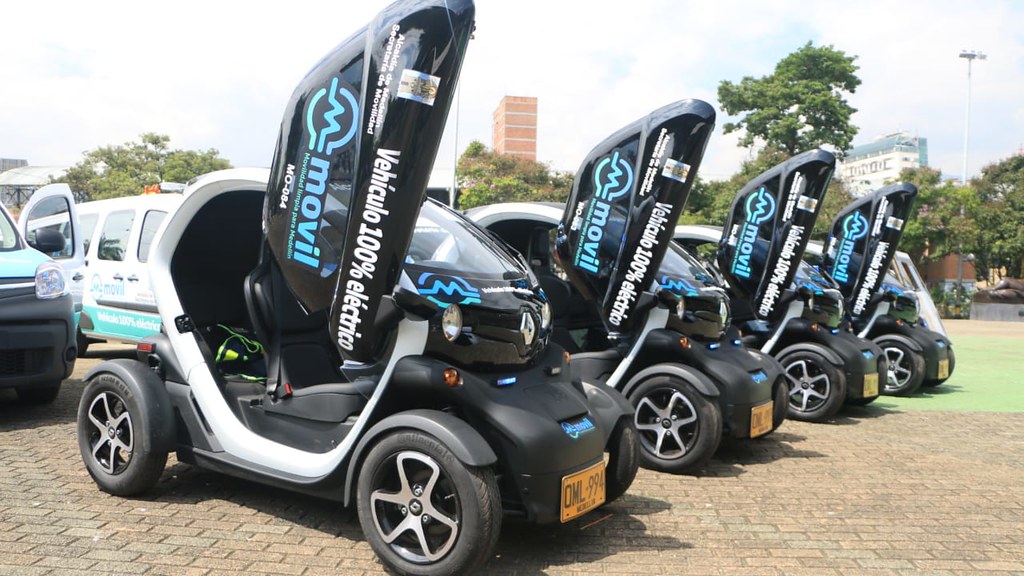Blanca Garrido Martín. Opositora a carrera diplomática.
RESUMEN
Hace dos siglos, los carruajes tirados por caballos eran el principal medio de transporte, pero en algunos lugares del mundo, los innovadores crearon los primeros autos eléctricos a pequeña escala. Hoy en día, la demanda de vehículos eléctricos (EV) está creciendo más rápido de lo esperado. En este contexto, es relevante analizar por qué estamos obligados a utilizar coches eléctricos. Para responder a esto, este artículo examinará el origen de este invento que, en la actualidad, todo el mundo desea poseer. Aunque, en un principio, los coches eléctricos fueron retirados del mercado tras unos años en él. De cara al futuro, es importante analizar si se está manipulando a la gente para que compre estos coches o se trata simplemente, como se dice, de una acción importante para el futuro de la Tierra y de la sociedad.
ABSTRACT
Two centuries ago, horsedrawn carriages were the primary mode of transportation, but in a few places in the world, innovators created the first small-scale electric cars. Nowadays, demand for electric vehicles (EV) is growing faster than expected.In this context, it is relevant to analyse why we are obligated to use electric cars. To answer this, this paper will examine the origin of this invention which, currently, everyone is keen to own. Although, originally, electric cars were withdrawn from the market after a few years in it. Looking to the future, it is important to analyse whether people are being manipulated to buy these cars or it is merely, as it is said, an important action for the future of the Earth and society.

Fuente: flickr.com
Awareness of climate change, Tesla’s success and a sharp increase in the price of diesel are among the causes of this phenomenon. However, criticisms have arisen regarding the production and the use of EV: battery life, expensive prices of electric cars and the legal pressure brought to bear by governments to buy an EV, among others. In this sense, governments are ratifying laws which prohibit the use of conventional cars in the main cities. Moreover, in a number of countries, such as the members of the European Union, the sale of diesel cars will be banned in 2030.
Around 1832, Robert Anderson developed the first real electric vehicle. Nonetheless, the use of these machines had in fact started at the end of nineteenth century. They became fairly popular, especially among aristocratic women who drove in the city for entertainment. They were quiet, easy to drive, and the smell was less offensive than the other types. Certain protagonists of the development of EV were Thomas Edison and Ferdinand Porsche who invented the first hybrid car: electricity and gas. It looks like our forefathers were more ecological than one hundred years later.
Nevertheless, gas gained ground, and suddenly with the appearance of Ford, the US and the main cities in Europe were full of gas stations. Cheaper and more abundant gasolines were the two main reasons to abandon the clean vehicles. After the boom of gasoline, diesel came to the market and experts and governments encouraged the purchase of the new type of car. They convinced people that diesel cars were cheaper and safer. Currently, advertisings campaigns and the main political discourse are focused on the purchase of the electric cars, the “same” electric cars that failed one century ago.
Looking to the future, there it is true that environment is crying out for clean energies. However, electric cars need batteries, which, according to several experts, will lead to the decline of modern society. The battery life of an ordinary laptop is up to 3 years. With modern mobile phones, it is up to 5 years. These are little devices of which problem is not the system, but the batteries.
In this context, electric cars will have the same problem, batteries are such a heavy object in the car (around 3,000 Kilogrammes), therefore, EV consume more electricity because of their weight. Once battery life is done, recycling them is difficult and they will end up in some landfill or in a poor country in Africa.
In short, the EV is not an invention of modern times, in fact, the electric car has a long history. At some point, it was not interesting for governments and companies to encourage this market. Nowadays, because of the urgency of climate change or the fact that reserves of petrol are decreasing, all the efforts are focused on Electric Vehicles.
Finally, it is possible to think that we will need to buy another type of car in the years to come due to the pollutants in batteries, “new cars” (they have already been invented) such as hydrogen vehicles; in this sense, is this a marketing strategy for selling new products once the previous ones are obsolete?
3 Mayo 2023
ISSN: 2340 – 2482
BIBLIOGRAFÍA
Automobile. (s. f.). https://education.nationalgeographic.org/resource/automobile/
Automobile History. (2018, 21 agosto). HISTORY. https://www.history.com/topics/inventions/automobiles
Bellis, M. (2019). A History of the Automobile. ThoughtCo. https://www.thoughtco.com/who-invented-the-car-4059932
The History of the Electric Car. (s. f.). Energy.gov. https://www.energy.gov/articles/history-electric-car
Who invented the automobile? (s. f.). The Library of Congress. https://www.loc.gov/everyday-mysteries/motor-vehicles-aeronautics-astronautics/item/who-invented-the-automobile/

¿Generar energía limpia con energía fósil? de Blanca Garrido Martín está bajo una Licencia Creative Commons Reconocimiento-NoComercial-CompartirIgual 4.0 Internacional
